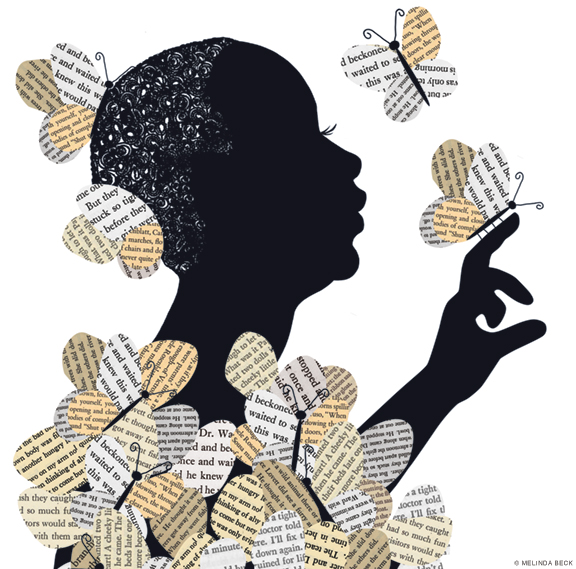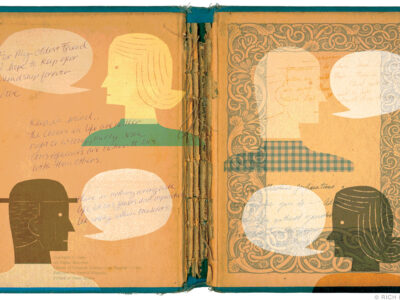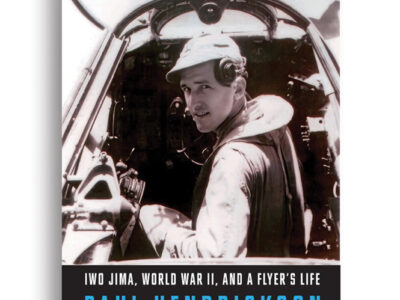
A 10,000-volume collection donated to the Penn Libraries reveals the deep connections between generations of black women writers and readers.
“Whenever I saw a book by a black woman author, I thought to myself: ‘Me, buy,’” Joanna Banks said with a chuckle. On this Thursday night in late February, the 77-year-old book collector had left her home outside Washington, DC, to come to Penn for a celebration of her gift to the Penn Libraries of some 10,000 books, periodicals, recordings, and photographs related to African American authors. As she surveyed a—very small—selection of those volumes, put out on display in Van Pelt-Dietrich Library, she added, almost to herself: “I bought just about everything I could find.”
The following day, Banks would join about 100 participants for the 2020 Jay I. Kislak Symposium, “Black Women Writing Across Genres in the Late 20th Century.” It focused on about 3,000 titles included in her gift—from treatises to memoirs, from children’s titles to cookbooks—written by black women.
Cosponsored by the Center for Africana Studies and the Wolf Humanities Center, the symposium was curated by doctoral candidates Destiny Crockett and Kiana Murphy. Lynne Farrington—senior curator in the Kislak Center for Special Collections, Rare Books, and Manuscripts, which will house the Banks collection—curated the pop-up exhibition.
Barbara Savage—the Geraldine R. Segal Professor of American Social Thought in the Department of Africana Studies, and a co-organizer of the symposium—has known Banks for more than 35 years. They met in a book club dedicated to reading works by black women authors, and it was Savage who first suggested that the Kislak Center might be the proper home for Banks’ collection.
“I’m relieved that I don’t have to be a steward anymore,” Banks explained during the symposium. “I don’t miss the books at all—I’ve always believed that when you give something away, you let it go fully.” Her only condition, she continued, was that the 1,000 or so children’s books in the collection “were not locked away behind closed doors, so that no child would have access to them.”
When Banks was growing up in Louisville, Kentucky, such books were a rarity. “The only black image I saw in a kids’ book was Little Black Sambo,” she said. As an adult, “I began hunting for other titles that featured black characters written by black authors,” she added. “It was such a thrill to find another book by another author I hadn’t known before.”
She started with black men authors—“there were just so many more around”—but by the early 1980s, African American women such as Alice Walker, Toni Morrison, Terry McMillan, and Banks’ favorite, the sci-fi-penning, MacArthur-winning Octavia Butler, were placing black female protagonists at the top of the best sellers list. In 1984, Banks formed the reading group that Savage would soon join.
During the symposium, a successor to these pioneers, Department of English senior lecturer and author Lorene Cary C’78 G’78 [“Her General Tubman,” Mar|Apr 2020], said that when she saw a book of hers in the exhibition, “I almost cried to be in their company.” Observing that such books “invite the white gaze, but do not depend on it,” she added: “This collection is a memoir itself. Every one of these books brings back whom you loved and where you were when you were reading it. These books come unfiltered, open, free.
“For that I thank you, Joanna. I know obsession. Admire it. Love it.”
In conversation with Banks, Crockett and Murphy invited her to share memories about her experiences in collecting, reading, and encountering these writers at the handful of black-owned bookstores in DC and through conferences at places like Howard University. With dry humor, Banks recalled receiving phone calls at home from scholars researching certain of her books. “I’d get up, go to my shelves, read to them what they wanted, and put the book back on the shelf.”
And she also discussed how her reading habits have changed over the years. “In my younger days, I could get through a 400-page book in a sitting,” she said. “I started and then stayed till the end. Now, I give a book 20 pages to engage me, tops!” When Crockett asked if there was “anything she ever avoided or wasn’t interested in,” her prompt retort was: “Anything with a title like ‘The Black Women’s Guide to Getting and Keeping a Black Man.’”
In an audience Q&A, a local high school student wondered if any of the books in her collection were on “inequality in America.” Banks paused for a moment before answering, “All of them.”
Another questioner wanted to know more about Banks’ penchant for cookbooks. “They’re fascinating to read. They’re history,” she responded, adding that even as she has divested herself of her enormous collection, “I have to admit that I’ve bought 13 new cookbooks since making the donation.” Her favorite recipe? “If you want to show me some love, make me caramel pound cake. And don’t caramelize some white sugar. Start with dark brown sugar, the kind that’s about my color!”
The symposium concluded with a series of panels featuring scholars on black queer studies; entrepreneurs running black-oriented businesses (including Harriet’s Bookshop in the Fishtown section of Philadelphia, the Colored Girls Museum in Germantown, and the Brooklyn-based collectibles shop BLK MKT Vintage); and research presentations by Columbia University graduate student Imani Ford, Crockett, and Murphy, who spoke of learning from her experience culling through Banks’ material that “abundance and the sheer joy of a thing can be a strategy behind collecting.”
Closing speaker Farah Jasmine Griffin, a former Penn English faculty member who is now chair of African American and African Diaspora Studies at Columbia, summed up the symposium by praising these varied efforts for “extending us into the future” and demonstrating that archives, in whatever form, are not repositories of dead material but living places “to be encountered again.”
Savage and Banks shared the last words. “This has been a celebration of women’s friendship—and my love for Joanna,” said Savage.
“And mine for Barbara,” added Banks.
As the two women hugged, Banks looked momentarily bemused. “I want to meet the Joanna Banks that everyone here has been talking about,” she said. —JoAnn Greco
The exhibit is scheduled to be on view until July 31. Currently, the Penn Libraries is closed until further notice because of COVID-19, but photos can be found at the Penn Libraries website’s exhibits and events page.




